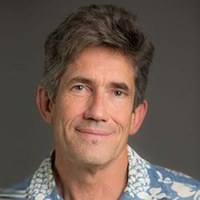Education:
Biography:
Larry Gorenflo is a professor of Landscape Architecture, Geography, and African Studies. He also serves as Faculty-in-Charge for the Environmental Inquiry Minor.
Gorenflo is internationally recognized for research that explores opportunities for integrative conservation efforts—linking the human and natural worlds—in part due to research that examines co-occurrence of important linguistic or cultural diversity with biological diversity. As a professor at Penn State, he studies connections between natural and cultural heritage, characteristics of our planet’s legacy that are disappearing at rates virtually unknown at any time in the past. In the face of such challenges, designed spaces are essential to maintain the natural and human diversity on Earth. Dr. Gorenflo’s research addresses the problem of identifying integrated conservation opportunities and creating conservation spaces through examining apparent links between cultural and biological diversity in places that feature high levels of both. He has conducted studies of biodiversity conservation throughout the world, including many localities in Latin America. He also pursues research on prehistoric and historic regional cultural adaptation in the Basin of Mexico, using both prehistoric data and historical data. The central Mexico research also explores conservation challenges, in this case the task of maintaining a remarkably rich dataset of nearly 4,000 archaeological sites amid growth in population, infrastructure, and commercial agriculture.
Gorenflo's research approach focuses on how people adapt to their natural and cultural surroundings, in both present and past contexts and at scales usually ranging from landscapes to regions. Much of this work involves how people use geographic space and often employs geographic information system technology. Studies of modern settings emphasize biodiversity conservation and involve attempts to understand human pressure on key locations of plant and animal species, as well as attempts to identify opportunities to conserve biological and cultural diversity in a world of human use and human need. Studies of past settings involve efforts to understand how earlier human cultural systems adapted to surrounding landscapes to meet their needs and how earlier adaptive strategies affected the natural environments where they occurred. Although he has worked throughout the United States, most of Dr. Gorenflo’s recent research involves international settings, with an emphasis on Latin America, Africa, and Southeast Asia. Similarly, despite emphases on a range of issues in prior inquiries, his current focus often involves human use of fresh water, village economics in rural Africa and Southeast Asia, and the role of cultural systems in creating important natural landscapes (and vice versa). All of this work aims towards developing designed environments that serve people as well as nature, as ecologically- and culturally-sensitive designs become increasingly necessary to maintaining special places on Earth.
Currently, Dr. Gorenflo is involved in research in southern Tanzania, western Cambodia, and central Mexico.
